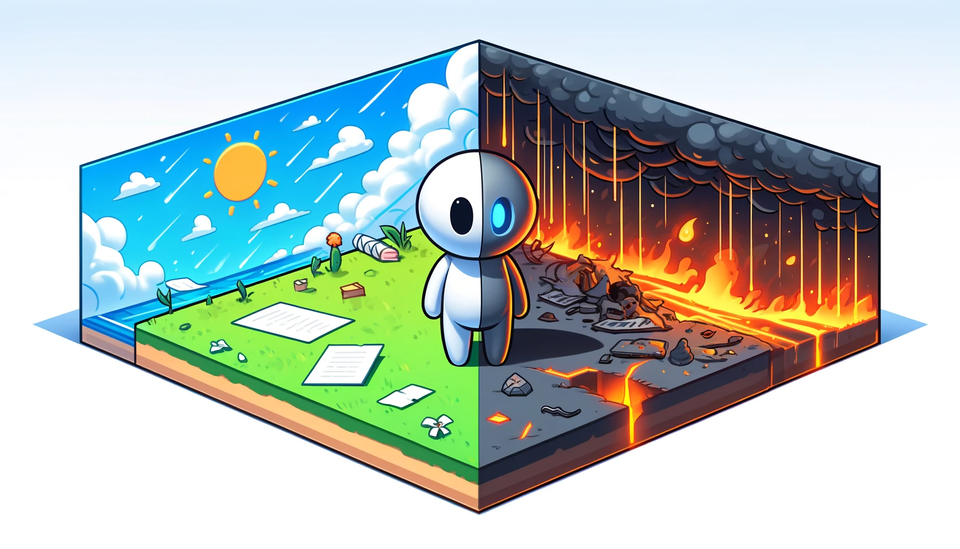Understanding Evil

It's easy to lump everything wrong into one category when discussing evil. But evil isn't a monolith. Two distinct types of evil shape the world: evil with a lowercase "e" and Evil with a capital "E."
evil
The lowercase version of evil represents the everyday chaos, the minor infractions, the little things we let slide. It's in the lies, the selfish decisions, and the moments when we let our impatience or frustration take control. This is the chaos that disrupts the flow of our day but doesn't shatter our world. We encounter the messy side of life daily, yet we might shrug it off or rationalize it. This evil is the kind of disorder that's easy to ignore but still chips away at trust and kindness in our communities.
Evil
Then there's the other kind: Evil with a capital "E." This represents something much darker, far more damaging. Evil in this form isn't just personal or inconvenient; it's systemic. It's the calculated cruelty, the profound injustices, and the atrocities that shock and scar societies. This is the deliberate harm that spreads suffering and fear, the kind of chaos that leaves a lasting stain on the world. Evil is oppression, it's destruction, it's the very worst of humanity when left unchecked.
Your role
What makes this distinction crucial is our role in allowing either form of evil to persist. Evil only exists because we allow it to. It thrives in spaces where people stay silent, indifferent, or passive. Whether the minor evils that slowly erode our social fabric or the larger ones that devastate lives, our tolerance for chaos—whether small or great—determines how far it can spread.
This division between evil and Evil offers a lens through which to understand our moral responsibility. The smaller forms of chaos might seem trivial in isolation, but when compounded, they form the foundation upon which greater evils can take root. Every small injustice, every act of unkindness, provides fertile ground for something worse. Conversely, challenging Evil requires more than small, personal actions; it demands systemic change, collective action, and an unwavering commitment to justice.
Recognizing these two faces of chaos—evil and Evil—isn't just an exercise in theory. It's a call to be vigilant, not to let the minor infractions slide, and to stand firm against the more considerable forces that threaten our shared humanity.
